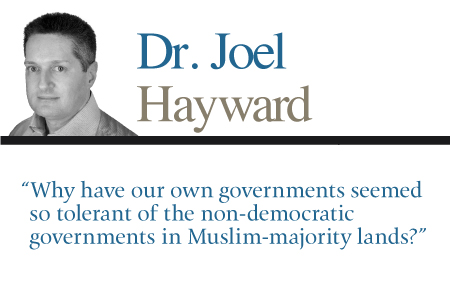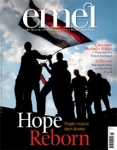
Evolution is often better than Revolution
Issue 78 March 2011
Pushing for too much too soon brings its own set of unprecedented risks.
When Tunisia’s dictatorial government collapsed and its leader fled, I felt both elation and trepidation. I rejoiced that the tightly grasping hands of despots had suddenly lost their hold on a people who could now, if they stayed sensible and resisted the temptation to rush, build a new Tunisia based on the democratic values of human rights, justice and representative governance. I nonetheless worried that this beautiful country might descend into chaos if its transitional governments find it hard to quickly meet the sky-high expectations of the liberated populace.
I have also worried about the problems that that might flow on from the public expectations that are now swelling elsewhere in the region. Tunisia’s claimed “revolution” has sent shockwaves across North Africa and into the Arabian Peninsula, with Egyptians and Yemenis in particular pouring onto their streets demanding the end of their own oppressive governments. Egypt’s government has now also fallen.
It is unlikely that other governments in the region will collapse as quickly and completely as Tunisia’s and Egypt’s, at least in a comparably bloodless fashion. Should any jittery Middle Eastern governments now at risk of overthrow decide to fight for their survival, things might degenerate badly. Not all spontaneous popular uprisings in history actually succeeded. In many cases state repression became far worse.
Perhaps we should not hope for all-at-once revolution, which is often far bloodier and harder on citizens in the short-term and more economically crippling in the medium-term, than the ideal solution: quick but measured evolution. Yes, we naturally want our Muslim brothers and sisters in oppressive states to live as freely as we do, so we should support their demands for change.
Yet it might be preferable for the inadequate or improper structures of excessive or oppressive governments to evolve, which can happen very quickly (and even faster if the leaders surrender), than for countries to pursue immediate revolution and then to suffer the desperate hardship, anarchy and societal collapse that would almost inevitably flow on from any state paralysis or even from short-term political vacuums.
Readers might be asking the question that also bothers me: why have our own governments seemed so tolerant of the non-democratic governments in Muslim-majority lands? Western governments have known for decades, for example, that the Egypt ruled since 1981 by the autocratic Hosni Mubarak was no model of liberal values and human rights. Yet the US and other western nations have apparently turned a blind eye to widespread repression, torture of political prisoners, corruption at the highest levels and poverty. This apparent inconsistency seems hard to explain, especially by nations which have sent troops into Islamic lands in the name of democratic values.
Yet the question needs answering, especially because the invasions of two Islamic lands during the last decade seemed so disproportionate and unpalatable to most of the world’s 1.6 billion Muslims that the Coalition inadvertently drove a wedge deeply between its member nations and much of the Muslim world.
My own answer would be that western states do detest tyranny and villainy. Yet they also dislike instability, uncertainty and unpredictability. With global trade, commerce and security now being interconnected to such complex and almost total levels, governments like ours rely to a phenomenal degree on stability and certainty. They are acutely aware that the unravelling of a single nation’s economy or security has the potential to cause worldwide financial and strategic calamities.
With major nations like Saudi Arabia and Egypt playing central roles in our economic fortunes, not to mention in managing the complex and fragile strategic balance within the Middle East, western governments have preferred the stability and certainty they offer to the alternative: popular revolutions which might place those states, their wealth, oil and militaries into the hands of, well, who-knows-who?
That is not the same as saying that western governments do not care about oppressed citizens in Muslim lands. They do care, and have long wanted democratic reforms. They would be delighted if more Middle Eastern states were to embrace the democratic ideals of equality, freedom and fairness even if those states did not adopt our particular models of representative government. Yet for reasons of economic and strategic stability and predictability, they would prefer evolutionary transition, not revolutionary chaos.
Dr Joel Hayward holds various senior academic posts, including Dean of the Royal Air Force College, and is an author and poet. These are his personal views only.
Bookmark this |
|
Add to DIGG |
|
Add to del.icio.us |
|
Stumble this |
|
Share on Facebook |
|
Share this |
|
Send to a Friend |
|
Link to this |
|
Printer Friendly |
|
Print in plain text |
|


Comments
1 Comment
1
musa ABDULLAHI
8 Mar 11, 17:48
How could you relate this recent development and the situation in Nigeria.... we are also fed up with corruption all over